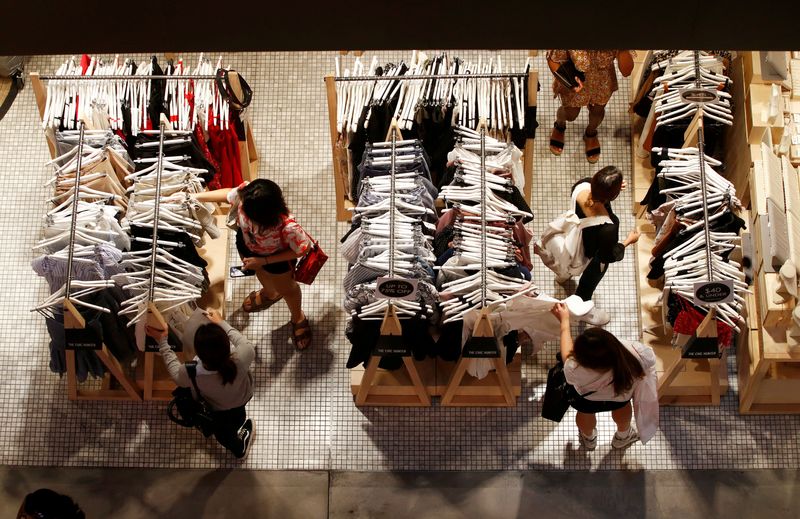Australian consumer sentiment slides as rates rise
2022.08.09 03:42

FILE PHOTO: Women shop for clothes on a store in a shopping mall in Sydney’s central business district (CBD) Australia, February 5, 2018. REUTERS/Daniel Munoz
By Wayne Cole
SYDNEY (Reuters) – A measure of Australian consumer sentiment fell for a ninth eighth straight month in August to depths last seen early in the pandemic as another hike in interest rates combined with the surging cost of living to sour the national mood.
The Westpac-Melbourne Institute index of consumer sentiment released on Tuesday slid 3.0% in August from July, when it also dropped 3.0%. The index was down 22% from August last year at 81.2, meaning pessimists far outnumber optimists.
The grim mood partly reflected the Reserve Bank of Australia’s (RBA) decision last week to raise interest rates by another 50 basis points to 1.85%, warning that yet more would be needed to restrain runaway inflation.
The impact was clear on mortgage holders where confidence tumbled 8.9%, while renters actually firmed 0.2%.
A separate weekly survey from ANZ showed a sharp drop of 4.5% in its confidence index that wiped out three weeks of gains, even as consumption held up.
“Household spending has been robust despite very weak consumer sentiment, with strong employment gains, high levels of household saving and a desire to travel more than offsetting concerns about the rising cost of living,” said David Plank, ANZ’s head of Australian economics.
“It remains to be seen whether this divergence between confidence and spending can continue.”
Rising borrowing costs is adding to pressures from higher energy prices, housing and food, and saw Westpac’s measure of whether it was a good time to buy a major household item slide 8.4%.
The measure of the economic outlook for the next 12 months dropped 8.0%, while the outlook for the next five years fell 1.0%.
Measures of family finances steadied a little after months of decline with finances compared with a year ago edging up 0.1%. The outlook for finances over the next 12 months added 2.3%, but was still down almost 18% on the year.








